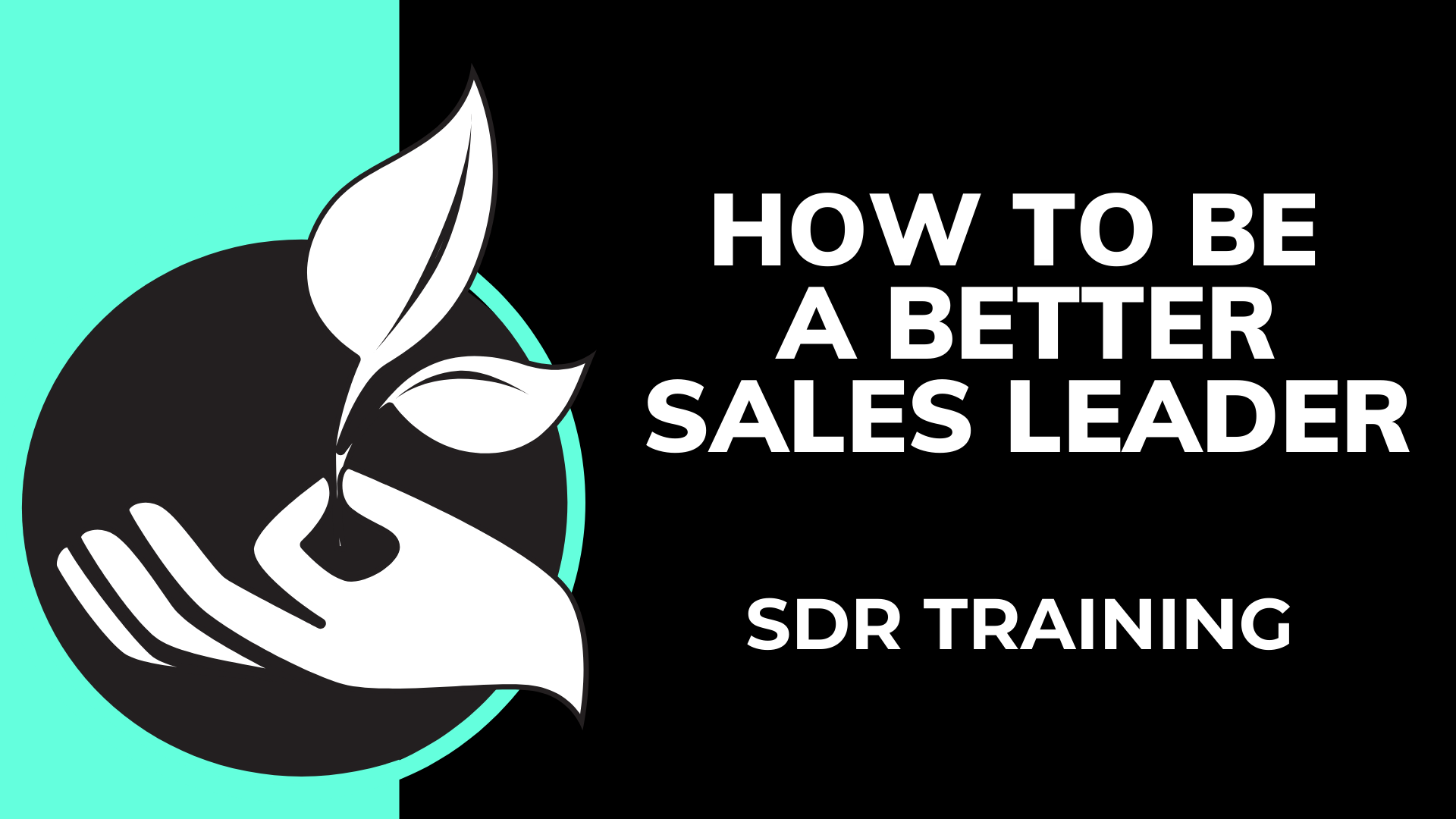Good leadership starts at the top, no matter what industry you’re in or what you’re selling. And it’s important to note that being a good person or being good at what you do, doesn’t exactly equate to being a good leader, especially in sales.
A Sales Development Representative, or SDR, is a key role in the sales team and lead generation process. SDR positions are known for heavy workloads and lots of stress, leading to higher rates of turnover from mental burnout and low job satisfaction. This leaves companies filling those empty roles with young and inexperienced sales reps, which can harm the company brand, as well as leading to lower sales and profit.
One of the best ways to prevent these extra costs from hurting your business is to train your sales development team properly.
69% of sales organizations cited sales training as the top enabler to their success, with U.S companies spending an average of $2,236 per year on sales training. Training your sales team isn’t always easy, but it’s an investment necessary for success.
Build a Better Company Culture
Company culture and management effectiveness matter a lot to salespeople. According to Hubspot, they’re so important that the average rep rated these two factors as “more important than base compensation, commission, job role, and job flexibility.”
So, how do you build a better culture? It’s about building trust and a safe environment where your sales development reps can show up as their authentic selves.
Jeff Bajorek said it best, “You need to have the trust of the people you lead. If they don’t trust you, they don’t know how you’re going to act. More importantly, if they don’t trust you to act in their best interest, you’re never going to get their best performance.”
His advice? “If you thought of your team as your customers, would you think about earning their trust a little differently?” He adds, “Think about how important it is for your team to know what’s coming and what to expect. How does that help them prepare for your meetings? How does that help guide their actions when you aren’t around? If they never know what will come out of your mouth next.”
If you don’t trust your reps to do their jobs. How do you expect them to trust you?
Consider spending more time and resources on training sales leaders and promoting a healthy, supportive, and growth-driven culture on your team.
SDR Onboarding & Professional Development
The return on investment (ROI) from the training and development of employees is really a no-brainer. Studies show that Fortune’s 100 ‘Best Companies to Work For’ provide twice as much training for full-time employees, compared to standard practices. Resulting in 65% less staff turnover than other organizations in the same sector.
While 46% of employees say their company’s training courses make them more likely to stay, with employees showing increased satisfaction levels and feelings of appreciation. These employees reported having better internal relationships, higher feelings of satisfaction, and increased efficiency in their roles.
Even the most experienced SDRs need (and should have) a library of resources to refer back to. This is why onboarding should be treated as an on-going process. Trained SDRs are able to focus more on their tasks while having the ability to add their own creativity and spark in their day-to-day responsibilities, which can be repeatable and tedious at times.
It all starts with onboarding.
If your business doesn’t have a solid onboarding program, you’re wasting time and valuable resources. This should include your mission statements, your values, and the goals of the company. Lead by example and show them through your actions, the kind of culture you are building and looking out for.
“I think it needs to come kind of top-down culturally in terms of that openness. I mean, you have to foster that from leadership to start,’’ says Hailey Pobanz, Enterprise Sales Development Manager at GitLab. Your SDRs should know who to turn to when they have a problem, a question, or need help. Take the time to foster good relationships from the beginning.
Onboarding will help your SDR integrate into the sales department and understand the end goal for the team as a whole.
As a sales leader, you should share:
- The current situation of the company
- Any important sales strategies
- Long and short-term objectives
- Tools / Tech stack needed for success
- Your target market and their pain points
- Industry leaders, influencers, and communities
Professional development never stops. SDR roles are continually learning more and improving their skills. This could include more roleplaying opportunities, coaching, listening to call recordings, or more.
Encourage and recognize work ethic, attitude, and improvements through coaching and ongoing training. Remember, the most important thing is to focus on improving and maximizing the communication and outreach skills of an SDR.
Schedule Recurring Meetings
As a sales leader, it’s your responsibility to coach and support your employees. One way to do this is through recurring 1-on-1 meetings. SDRs should be meeting weekly with their direct leadership to discuss objectives, key figures, and the tactical steps needed to reach their goals.
These meetings should have structure but also be informal, with the employee as the major focus. You should be covering pre-mortems, debriefs, or post-mortems, talking about what went well, or what could have gone better during that week. Other topics can include current goals, progress, feedback, recognition, expectations, mental health, and career aspirations.
For the most effective 1-on-1s, be sure to practice active listening. Listen carefully to what is being shared and be sure to show your support. If your SDR is opening up to you, don’t make them regret it. (You know the golden rule.)
Recognition and respect will strengthen relationships and increase transparency, which is necessary for building a strong team, especially if you’re working remotely.
Practice & Roleplay
Top sales leaders understand the direct correlation between practice and performance. It makes sense, right? Almost everyone has heard the saying, “Practice makes perfect.” Teams that roleplay have a significant advantage over teams that don’t.
The more time SDRs spend listening to themselves, to others, and observing their sales leaders, the more confidence they gain and the better they perform.
Then why do so many other sales leaders think of roleplaying as a waste of time?
Chances are, they probably remember sitting through some embarrassing or awkward roleplays in the past, and they just don’t see the benefit. But, if you’re an SDR manager, you should know how important it is to be flexible and focused during phone calls.
Roleplaying is one of the best ways to train and empower your SDRs to have more quality conversations, leading to better appointment setting rates and maximize results. Be sure to make it realistic, but don’t put too much pressure on your team. Remember, this is about learning.
For the best roleplaying scenarios:
- Communicate the objectives & rules
- Use real customer personas, scripts, and situations
- Go through all the steps they would need to take in the process
- Stay in character throughout the call
- Practice common objections and rejections
- Reverse roles in team roleplays
Finding the Balance
Sales leaders walk a delicate line. You have to be firm enough to shift behavior but keep open enough to help your SDRs feel comfortable in your presence. Especially while discussing their needs, wants, and performance. Anyone can become a great sales leader, they just have to learn how.
According to Damon Jones, Head of Global Strategy and Growth at Sandler Training, “Too much of sales management is telling salespeople what to do as opposed to letting salespeople do their own self-discovery and learning. By investing in training your sales coaches, you can foster good behavior and better outcomes from the start.”







